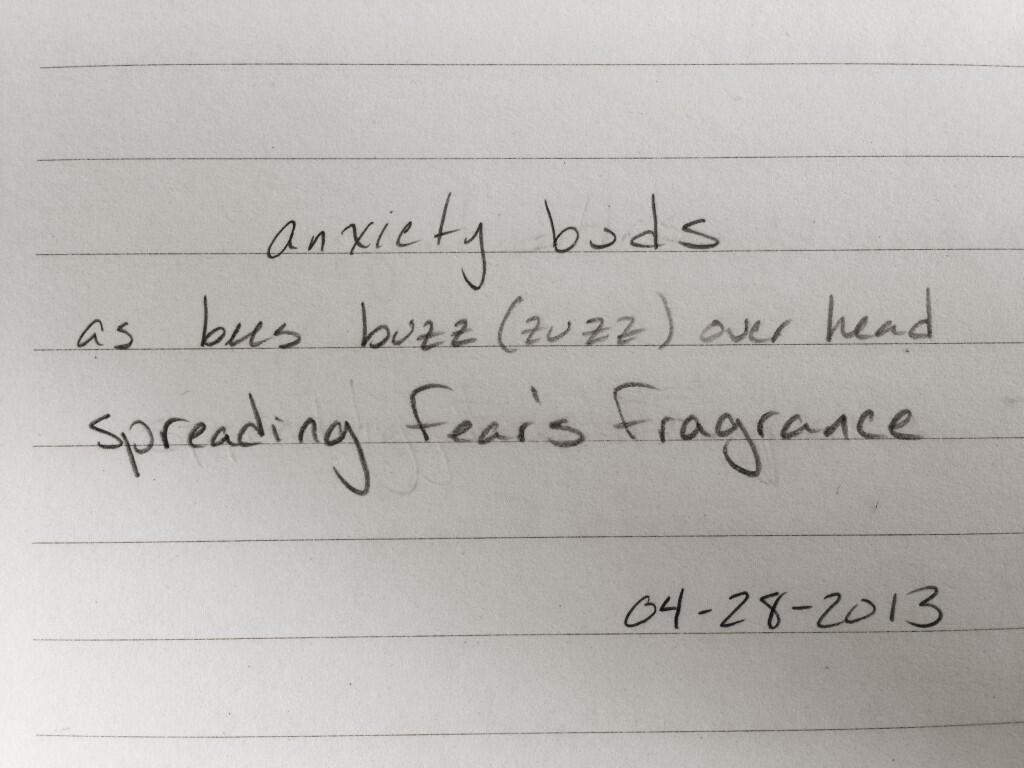When she was young (but not too young)
they came -- took her and her family away.
"You there." (her finger mimics pointing
left) "You there." (she points to the right)
"You there." on and on they're sorted
separated
"We asked when we'd see our family.
'On Sunday,' they said."
come Sunday
"They walked us past the crematorium.
'There is your family,' they gestured."
she mentioned the showers --
they didn't know more than water
could escape those heads.
"My cousins were brought to the same
camp. Four sisters, the only family I had
left."
she was determined to live
"day by day."
her goal -- to drink a glass of milk
again. Seems silly, but to hear her talk of it
was like the Holy Grail.
"Did you ever try to escape?"
an eighth grader asks.
"No. They were going to move us.
There were these girls I worked with;
they had a plan. They wanted me to go too.
I said 'no.'"
the importance of family
rang in her "no."
"I wanted to stay with my cousins.
I could not leave them."
"When did you know you were free?"
another child asks.
"We lined up like always -- to be counted
before we were allowed to eat. The guards
didn't come. We waited. Some of the kitchen
staff came out, said not to eat; it was poison.
We waited still, no one came. Eventually,
someone tried the gates. They were open.
Then we knew.
she got her milk -- a trade for cigarettes
(the soldiers said would kill the germs in them)
the milk tasted better.
Eventually, she found her way to the states --
sponsored by family -- on a student visa.
"I met my husband in night school.
I used to have long gorgeous ringlets." her
hand brushes her bare shoulder. "he sat behind me
and would stick his pencil through them."
she speaks now to students;
not travelling too far from home.
"I used to visit with my cousin, she's here too.
But she can't drive anymore and I can't sit in a car
for more than 20 minutes -- pain radiates in my back
and down through my hip and leg. I was struck
on the back while in the camp. It wasn't so bad then,
but age seems to have aggravated it."
age she's lucky to feel.
her message is to love all regardless,
to cherish family. she talks so her message
will live on in the young.
"It's important they know. Eventually,
there 'ill be no one left to tell our story.
We need to do so now."
her words are haunting, you can see it in the eyes
of the young, but her point is clear
when all are gone it is the young who must
remember so such evils cannot rise again.
Inspiration for this piece: Earlier this week, I had the honor of listening to two Holocaust survivors talk about their experience to a group of eighth grade students. They had two very different experiences, but still they survived a time when most of their faith did not. The quotes are paraphrased, but nonetheless hold close to the words spoken. I barely touched on the experience conveyed, simply pulled bits and pieces. It pales in comparison, I know. Maybe I'll come back to it and fit in some of the other details (the bombing, the singing run, the feet wrapped in newspaper for shoes...).






